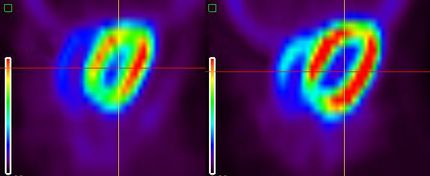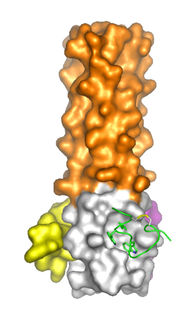Novartis: Eucreas recommended for EU approval for type 2 diabetes
Advertisement
Novartis has received a positive opinion recommending European Union approval for Eucreas®, an oral tablet combining Galvus® (vildagliptin) and metformin, as a new treatment for patients with type 2 diabetes. Following approval, Eucreas will be the first single-tablet combination of a DPP-4 inhibitor and metformin approved in the EU.
The positive opinion for Eucreas was issued by the Committee for Medicinal Products for Human Use (CHMP), which reviews medicines for the European Commission (EC). The Commission generally follows the CHMP's recommendations and is expected to issue a decision within three months.
The recommendation was based on data showing additional robust reductions in blood sugar when Galvus, a member of a new class of diabetes medicines called DPP-4 inhibitors, was added to metformin - one of the most prescribed oral anti-diabetes therapies. In clinical studies, Galvus administered in combination with metformin resulted in additional blood sugar reductions of 1.1% as measured by HbA1c, the gold standard measure of blood sugar control.
Importantly for patients, Galvus, when added to metformin, is also well tolerated. In clinical trials, the addition of Galvus to metformin provided robust blood sugar control without weight gain and with fewer hypoglycemia side effects (i.e. dangerously low blood sugar) than other type 2 diabetes medicines such as sulfonylureas or thiazolidinediones.
Galvus received a positive opinion from the CHMP in July 2007 recommending European approval as an add-on to the most common oral anti-diabetes medicines, with the broadest range of indications for any drug in the DPP-4 class.
Eucreas has been recommended for use in type 2 diabetes patients who are inadequately controlled with metformin alone or are being treated with Galvus and metformin as separate tablets. Eucreas is recommended for use twice-daily at a dose of either 50 mg Galvus/850 mg metformin or 50 mg Galvus/1000 mg metformin.
A study of 544 patients with type 2 diabetes who were inadequately controlled on metformin showed that 35.5% achieved glycemic control (HbA1c < 7.0%) when Galvus was added to metformin, compared to 9.4% of those receiving metformin with placebo. The American Diabetes Association recommends an HbA1c of less than 7.0% to minimize risk of complications in type 2 diabetes patients.
Eucreas combines two agents to provide robust blood sugar control by increasing insulin, decreasing glucagon and targeting insulin resistance. Galvus works through a novel mechanism of action by targeting the dysfunction in the pancreatic islets that causes high blood sugar levels in people with type 2 diabetes. Metformin works mainly by decreasing the production of sugar by the liver and increasing insulin sensitivity. In Eucreas, Galvus and metformin work to restore the natural function of the body in controlling blood sugar.
In clinical trials, Galvus demonstrated an overall incidence of side effects similar to placebo. The most common side effects seen in the Galvus clinical program were stuffy nose, headaches, dizziness and upper respiratory tract infection.























































